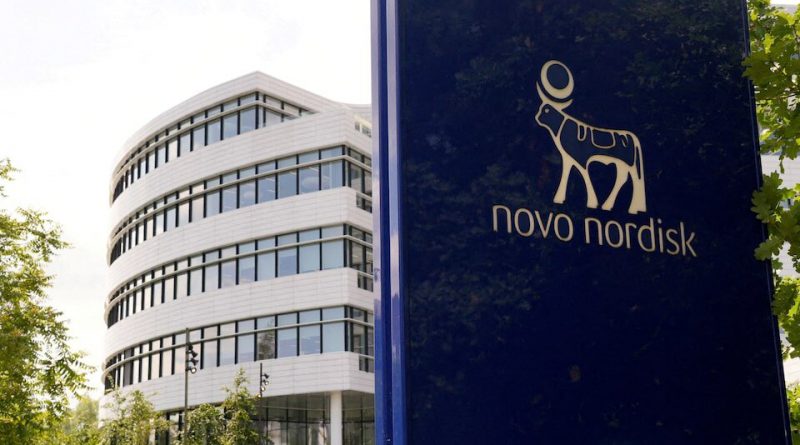Novo Nordisk Makes Bold $5.2 Billion Move with Akero Buyout to Accelerate Liver Disease Breakthroughs
In a landmark deal marking a new era under CEO Mike Doustdar, Novo Nordisk acquires Akero Therapeutics for up to $5.2 billion — signaling renewed confidence, strategic growth, and an ambitious push into next-generation metabolic and liver disease treatments.
Novo Nordisk, the Danish pharmaceutical giant renowned for its diabetes and obesity drugs, has made a decisive move to strengthen its innovation pipeline by announcing the acquisition of U.S.-based Akero Therapeutics for up to $5.2 billion.
The deal, unveiled on Thursday, underscores the company’s renewed commitment to growth under its new CEO, Mike Doustdar, and represents one of its most significant transactions in recent years.
This strategic buyout, financed through debt and expected to close by the end of 2025, gives Novo access to Akero’s promising late-stage drug candidate efruxifermin, aimed at treating metabolic dysfunction-associated steatohepatitis (MASH) — a chronic liver disease linked to obesity and diabetes.
The acquisition highlights Novo’s expanding focus on cardiometabolic health, a field that blends obesity, diabetes, and liver disease treatment.
For Doustdar, who assumed leadership in July, the move is a clear statement of intent: to reinforce Novo’s dominance in metabolic therapies while steering the company toward new horizons of innovation.
Analysts see the deal as a pivotal moment for the company. Evan Seigerman of BMO Capital remarked that this acquisition, coupled with recent internal restructuring, signals Doustdar’s determination to “bring the ship back on course” after a challenging period marked by market share erosion and job cuts.
Earlier this year, Novo announced a reduction of 9,000 jobs, a move seen as part of Doustdar’s strategy to streamline operations and refocus on high-impact therapies. This latest acquisition, however, reflects a bold and confident turnaround.
Efruxifermin, Akero’s star drug, has shown encouraging results in reversing liver scarring in MASH patients during earlier studies. Experts suggest it could become a game-changer in addressing a disease that affects nearly 5% of U.S. adults, representing a vast, unmet medical need.
Doustdar described efruxifermin as “an important building block for future growth,” noting that the therapy could complement Novo’s existing suite of metabolic treatments. The acquisition is particularly timely as Novo braces for the loss of exclusivity on semaglutide, the active ingredient in its blockbuster drug Wegovy, beginning next year in key markets like India and China.
Industry observers believe the move demonstrates Doustdar’s long-term vision — not just maintaining Novo’s stronghold in obesity and diabetes but expanding into adjacent therapeutic areas with high growth potential.
Lukas Leu, portfolio manager at ATG Healthcare, one of Novo’s major shareholders, described the acquisition as a “positive signal” of confidence. He praised the company’s decision to invest heavily in a high-growth area, especially as competitors such as Roche and GSK have also made strategic moves in the metabolic space.
In August, Wegovy became the first GLP-1 drug to receive accelerated approval for MASH in the United States, opening the door for Novo to build on that momentum with Akero’s complementary technology.
The company had previously discontinued its own MASH candidate, zalfermin, after clinical setbacks. With Akero’s efruxifermin now in late-stage development, Novo is effectively replacing that loss with a more advanced and promising asset.
The size of this deal also marks a significant leap for Novo Nordisk’s acquisition strategy. Historically, its biotech purchases in the metabolic disease space ranged between $1 billion and $2 billion, making this $5.2 billion buyout a bold escalation in both ambition and scale.
Akero’s shareholders will receive an upfront cash payment of $54 per share, representing a 16.2% premium over its last closing price, along with an additional $6 per share if efruxifermin secures full U.S. approval by June 2031.
Following the announcement, Akero’s stock surged by more than 16%, reflecting investor optimism, while Novo’s shares dipped slightly by 1%, likely due to short-term financing concerns.
Despite the minor stock decline, analysts remain bullish on Novo’s long-term prospects. They view this acquisition as a strong message that Doustdar is unafraid to take calculated risks to rejuvenate the company’s innovation engine.
Since his appointment, Novo’s shares have climbed 11%, although they remain down nearly 40% for the year. Analysts attribute the earlier decline to slowing Wegovy prescription trends in the U.S., but many now expect a rebound as the Akero acquisition repositions Novo for growth.
The deal also aligns with Novo’s broader mission to tackle chronic and interlinked diseases — from obesity to liver and cardiovascular conditions — through an integrated research approach.
As Doustdar continues to reshape Novo Nordisk’s global strategy, the acquisition of Akero Therapeutics stands out as a bold first chapter in his leadership journey.
By doubling down on metabolic innovation and strengthening its drug pipeline, Novo Nordisk is not only reaffirming its role as a leader in healthcare innovation but also setting the stage for a revival that could redefine the next decade of biopharmaceutical advancement.



